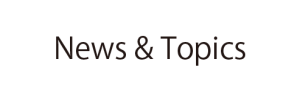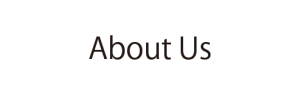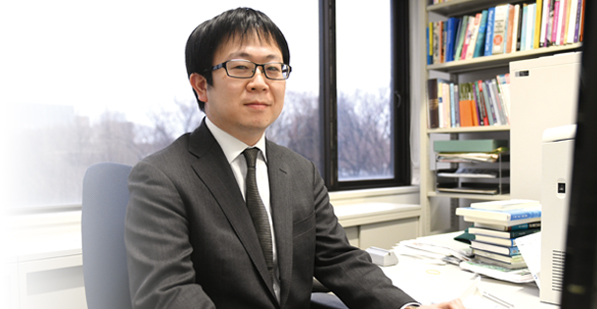Lecturer/Takahiro Suzuki
近況 Recent activities
- Jun. 2025 – パリ・ドーフィンヌ大学にお招きいただき、研究打合せをしました。
Visited Université Paris Dauphine – PSL for a research meeting. - May. 2025 – 海外共同研究の成果を arXiv に公開しました。
Released an arXiv preprint (international joint research):
Suzuki, T., Aleandri, M., Moretti, S.
Mill’s Canons Meet Social Ranking: A Characterization of Plurality.
https://doi.org/10.48550/arXiv.2505.10187 - Apr. 2025 – 海外共同研究の成果を arXiv に公開しました。
Released an arXiv preprint (international joint research):
Suzuki, T., Moretti, S., Aleandri, M.
Ranking Alternatives from Opinions on Criteria.
https://doi.org/10.48550/arXiv.2504.06676 - Feb. 2025 – 査読付き学術誌に論文が掲載されました。
Published in a peer-reviewed journal:
Suzuki, T.
Aggregating Opinions on Sets of Alternatives: Characterization and Applications.
Group Decision and Negotiation, 34, 273–295 (2025).
https://doi.org/10.1007/s10726-024-09913-w - Jan. 2025 – 招待講演を行いました。
Delivered an invited talk at the Tokyo Social Choice Theory Workshop.
過去の業績一覧はresearchmapへ/Full list on researchmap:
https://researchmap.jp/takahiro_suzuki
プロフィール Profile
専門分野:社会的意思決定,コンフリクトマネジメント
Social choice theory, game theory
担当講義:基礎情報学、基礎プロジェクトⅡ、マネジメント原論、社会基盤マネジメント特論、社会的意思決定論、社会基盤のフロンティアⅠ
研究業績等(Researchmap):https://researchmap.jp/takahiro_suzuki
2012年東京大学工学部社会基盤学科卒業,2014年東京大学大学院工学系研究科修士課程修了,2017年東京大学大学院新領域創成科学研究科博士課程修了(PhD),2017~2020年国土交通省国土技術政策総合研究所社会資本マネジメント研究センター社会資本マネジメント研究室研究官,2020年より東京大学大学院工学系研究科社会基盤学専攻助教
Takahiro Suzuki is currently an Assistant professor at the Department of Civil Engineering, The University of Tokyo. He received a PhD from The University of Tokyo in 2017 and subsequently worked as a Researcher at Construction and Maintenance Management Division, Research Center for Infrastructure Management, National Institute for Land and Infrastructure Management, Ministry of Land, Infrastructure, Transport and Tourism until he moved to The University of Tokyo in April, 2020.
■ 研究テーマの概要と目標
◇決め方の決め方:
社会基盤事業では、計画・調査段階から供用・維持管理に至るまで、段階ごとに多様な利害関係者や制約、規範が存在します。そのため、そもそもどのように意思決定を行うべきかという「決め方の決め方」の問題がしばしば生じます。私は社会的選択理論やゲーム理論を用いて、状況に応じた適切な意思決定のあり方(およびその決め方)を明らかにすることを目指しています。
◇ソーシャルランキング:
チームスポーツや研究活動、企業内の協働など、私たちは様々な場面で協力しながら活動しています。そうした状況で、人やグループの貢献をどのように測り、どう評価するのが適切かを理論的に分析するのが「ソーシャルランキング」の研究です。この分野は社会的選択、因果推論、機械学習など他分野との接点も多く、今後の発展が期待されます。私自身もその発展に貢献したいと考えています。
■ Areas of research interest and outlook
◇How to choose how to choose:
In civil engineering projects, various decision-making challenges arise from the planning and surveying stages through to operation and maintenance. Each stage involves different stakeholders, constraints, and norms. As such, the question of how decisions should be made — the “procedure for choosing a procedure” — often emerges. I address this issue using tools from social choice theory and game theory, aiming to identify appropriate decision-making frameworks tailored to different contexts.
◇Social ranking:
Cooperation is essential in many areas of life, such as team sports, academic collaboration, and organizational work. In such settings, evaluating the contribution of individuals or groups and designing fair and effective evaluation systems are important theoretical challenges. My research focuses on the theory of social ranking solutions (SRS), which explores these questions. This emerging field is deeply connected with other disciplines, including causal inference, social choice theory, and machine learning, and I aim to contribute to its ongoing development.
■ 現在の研究に携わることになったきっかけとは?
「決め方の決め方、さらにその決め方……」と無限に遡る「メタ決定」の問題。この古典的なテーマは、哲学や経済学など多くの学術分野で異なる言葉を用いながら論じられてきました。私自身は大学院時代、当時の恩師の勧めでこのテーマに取り組み始めましたが、その抽象性と普遍性に強く惹かれたのを覚えています。
こうした研究を進める中で、ヨーロッパやブラジルの研究者と出会い、ゲーム理論やソーシャルランキングに関する共同研究も始まりました。専門や背景の異なる多様な方々との交流を通じて、新たな視点に触れる機会も増え、研究の幅も広がりました。
■ Why did you choose to work on this area?
The infinite regress of “how to choose how to choose (and so on)” is a classical meta-decision problem that has been discussed in various academic fields, including philosophy, economics, and mathematics. I began working on this topic during graduate school, encouraged by my supervisor. I found myself drawn to the abstract and universal nature of the problem, which suited my intellectual inclinations.
Over time, my research scope has broadened through collaborations with researchers in Europe and Brazil. These international joint projects have not only introduced me to new perspectives and methods but also deepened and diversified my academic interests.
■ ゼミの特徴や魅力、学生とのコミュニケーション
ゼミの特徴には「研究テーマ・手法の多様性」が挙げられます。実際、自分でテーマを探してもらうことで各自が様々なトピックに取り組んでおり、理論から実証・実践に至るまでアプローチも多岐にわたります。自分の強みを生かしつつ、多様な視点に触れることができるのも当ゼミの魅力と言えるでしょう。
新しく配属された4年生向けの勉強会を担当していますが、最初はきっと分からないことばかりでしょう。そこで「研究とは何か」といった基礎的なところから入り、各自のテーマが見えてきて、やがて本格的な活動に取り組んでいくまで、研究に馴染んでいきやすいような場を作ることを心掛けています。当研究室ではまた、皆さんに「手を動かしてもらうこと」を大事にしています。
■ 期待する学生像と本研究室での学び
私自身も当研究室の卒業生でした。配属当時は、研究したいテーマもまだ固まっていませんでしたが、勉強会などを通じて幅広い研究に触れていくうちに、数理的なアプローチに惹かれ、研究を進めていったものです。当研究室に進もうと考えている学生の皆さんにも、この場で体験できる研究の楽しさを感じてほしいですね。
■ What we expect of our students and their learning in our laboratory
I am also an alumnus of this laboratory. When I first joined as an undergraduate, I had no clear research topic in mind. However, through participating in seminars and being exposed to a wide range of research, I gradually developed an interest in mathematical approaches and found my own direction.
To students considering joining this lab, I hope you will enjoy the process of discovery and the intellectual excitement that comes with research.








